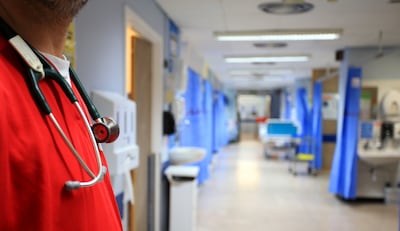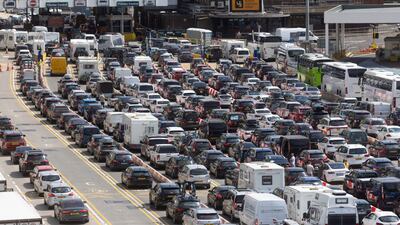Some problems are personal. Some are political. But when the personal and political collide, governments often find themselves in trouble. That’s because if a political problem touches voters personally, the public mood changes quickly.
It happened in Britain in the 1970s. Many voters believed that weak governments needed to stand up to strong trade unions because labour unrest in public services meant rubbish on the streets, and endless strikes. Margaret Thatcher came to power because she was seen as the new face to bring about change. It happened again in the 1990s. Tony Blair swept away Thatcher’s tired Conservative party. It may be happening in Britain right now, because after 12 years of Conservative governments the personal and the political are colliding unhappily yet again.
Imagine, for example, that you want a summer holiday. A few weeks ago, you realised your British passport was about to expire. Thinking ahead, you filled out the renewal forms and sent them to the Passport Office. Unfortunately, as far back as May 2021 the government minister involved, Priti Patel, was warned by Home Office officials that the Passport Office service run by a private company, Teleperformance, was “unsatisfactory". Trouble lay ahead. Now trouble is here.
An estimated half a million British passports are stuck in what has been described as the Passport Office “meltdown”. You are furious that you can’t go on holiday abroad, but then, suddenly you cheer up. That’s because if you had managed to get your passport renewed, you would be among the thousands of British drivers stuck in cars up to 20 hours trying to board a ferry or Eurotunnel train from England to France.
Travel experts explain that before Brexit, most British travellers would be waved through EU border crossings without rigorous passport checks. But since Brexit, as a result of the British government “taking back control”, every passport has to be checked on every border crossing. The mathematics are simple. If each check takes one minute, for a car containing a family of four, that’s four minutes. Multiply those four minutes by tens of thousands of checks a day and – voila! – you have 20 hours in a traffic queue.
So now you have a valid passport but you are stuck in a queue and you turn on the radio to hear the news. The news headlines remind you why you need a holiday. One says that the much-loved British National Health Service faces “the greatest workforce crisis” in its history. There are fears of a very bad winter ahead, according to a cross-party group of MPs. But for you this is not just political news. This is a serious personal problem. You tried to get a routine doctor’s appointment, but couldn’t do so. You couldn’t even speak to a doctor on the telephone. Your elderly neighbour had to wait several hours for an ambulance. Your mother needs a hip replacement operation, but that has been delayed. Again.

The cross-party MPs’ report says that there is an “absence of a credible government strategy” to solve these problems, which leave the UK short of at least 8,000 doctors and almost 40,000 nurses. It takes seven years of study to become a doctor. Seven years. Then this political problem becomes personal in another way, too. Can you afford to join the estimated 4 million British people who already have private health insurance? Maybe you will be forced to borrow money to pay for self-funded private treatment. According to the Private Healthcare Information Network, there were 69,000 self-funded treatments in the UK in the final three months of 2021. That’s up from 50,000 during the same period before the pandemic.
My own problem is personal in another way. My five-year-old laptop has died. I can’t switch it on, and when I took it for repair I was told that “supply chain issues” mean spare parts are in short supply. A repair will take “up to a month”. I looked at new laptops, but the one I liked is “unavailable for up to six weeks, maybe longer” thanks to those infamous “supply chain issues”. Now, I do not expect any government to solve my personal laptop crisis or every kind of other problem. No one does. Coronavirus has produced all kinds of economic, supply chain and social dislocations. So has the war in Ukraine, the threat to food supplies, global warming, drought, and inflation. Serious issues require long-term commitments, fresh ideas and international co-operation.
But just because governments cannot solve everything does not mean they can solve nothing. Worse, there are some politicians who appear to prefer to create problems rather than solve them. Right now in Britain, the public mood is sour and apprehensive, and it may turn into an unstoppable demand for change. Since the end of the British empire, the country's political elite sometimes had delusions of grandeur. They now appear to have delusions of competence.
And if that doesn’t change, it will be a hard winter ahead – for the British government, as well as the British people.


